10 “Nice” Things Neurotypical People Unknowingly Do That Harm Autistics
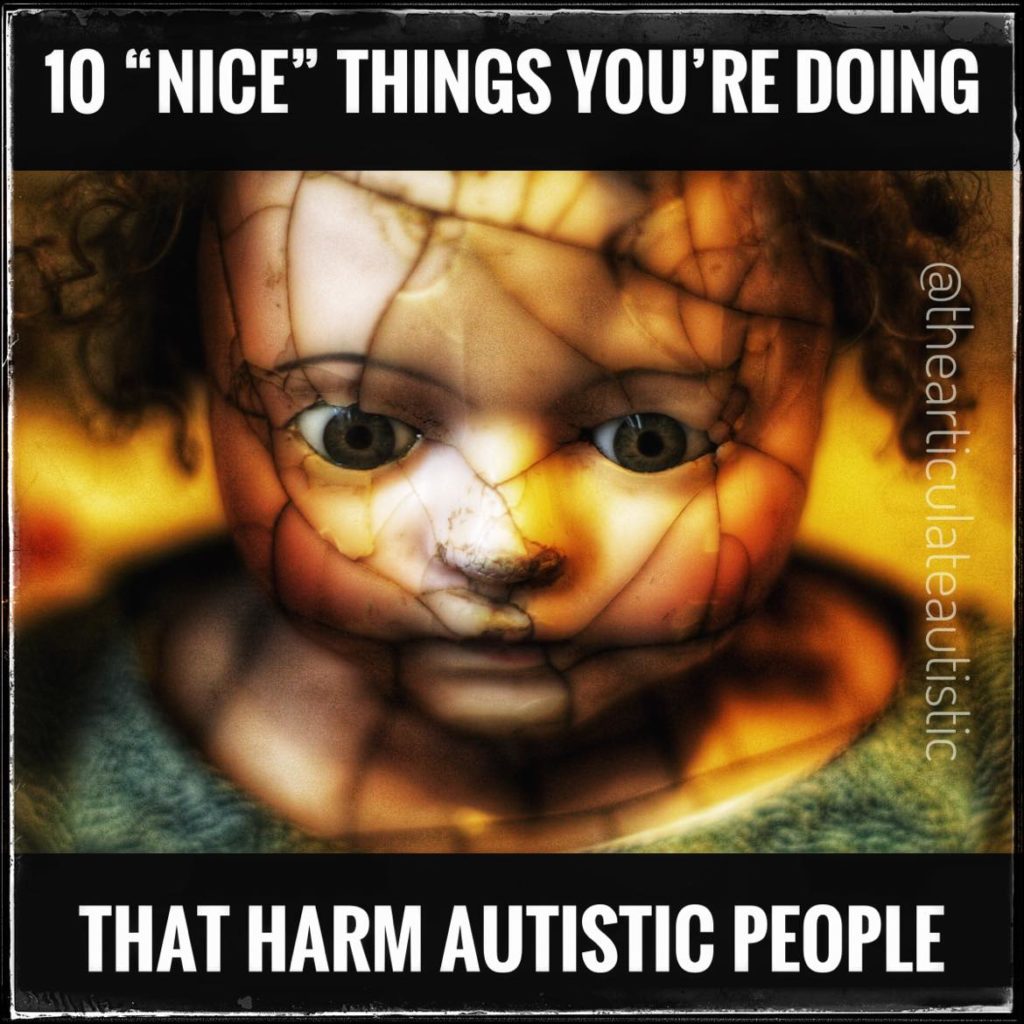
I’ve been asking the autistic community questions on my Instagram page, and they’ve helped me to come up with a list of 10 things that neurotypical people do in an attempt to be “nice” and caring to their autistic loved ones that actually end up having the opposite effect.
- Surprises
Many autistic people not only hate surprises, we are often confused and unnerved by them. A surprise for an autistic person usually means a change in calming and centering routines, unfamiliar sensory input, unrehearsed social situations and expectations, and little to no processing time between what’s comfortable and familiar and what’s new and different.
For example, let’s say a neurotypical mother decides to decorate the entire house for her autistic son’s 12th birthday. It’s a milestone year, just one more year until he’s a teenager, so let’s make it special, right? So, she brings out the streamers, and the balloons, and the shiny decorations, and she films his reaction when he wakes up because he’s going to love it, right?
Wrong.
I’ve actually seen this happen on social media, and I cringed so hard when I watched the video, I’m surprised I didn’t pucker inside out (sarcasm, but still), and the son’s response was exactly what someone in the know about how the autistic brain works should have expected.
He immediately averted his eyes from the confusing and overwhelming sight of a room that no longer looked familiar to him and walked away quickly, stimming and looking distressed, and then he looked even more distressed when the people around him started singing “Happy Birthday”.
I know well-meaning parents want to surprise their kids with gestures like this, but in the case of an autistic child, the parent is simply doing it for themselves. They may even be hoping against hope that their child will have a neurotypical reaction just this one time, and then get offended and hurt when they don’t and snap at their child, which only makes a difficult situation worse.
This goes for any type of surprise. Surprises aren’t fun for many autistic people. If you want to show your love by surprising the autistic person in your life, ask them in advance if this is something they want. Otherwise, assume they don’t.
- Tickling/Teasing/Roughhousing
Some neurotypical people bond through a combination of tickling, playful teasing, and roughhousing with one another. I’d love to tell you I understand why, but I truly don’t, so I can’t explain it from the neurotypical perspective, but, near as I can figure, it has something to do with bonding chemicals that are released in the brain during these activities that cause feelings of closeness.
It may also be a way for NT people to show domination and reinforce social hierarchy without actually causing physical harm to their loved one. For example, the dad pins his son and tickles him, causing the child to laugh and surrender, which gives a subtle signal to the son and the surrounding family members that the dad is in the current alpha male and not to be challenged.

Another example might be a mother teasing her daughter about how her current hairstyle looks as though she stuck a fork in an electrical socket. Instead of outright saying, “Your hair looks terrible!”, she teases her daughter in a joking way to stave off hurt feelings while also calling attention to a decision she doesn’t agree with.
Furthermore, most autistic people are very literal-minded, so even light-hearted teasing can come across as a purposeful and mean-spirited attack, which can trigger a fight-or-flight response.
Moreover, tickling is not only a no-no, but a NO WAY amongst many autistic people. It’s a sensory nightmare! The same goes for certain types of roughhousing. The neurotypical person may think they are being gentle, but to the autistic person, their play fighting is painful. Not to mention, many autistic people also have PTSD, so, like teasing, roughhousing could also bring about a fight-or-flight response in the affected person.
Again, this may lead to the neurotypical person being surprised, hurt, and offended by this reaction, which may cause the NT person to snap while the autistic person further loses emotional equilibrium.
- Unannounced visits or phone calls
Us autistic people need routine and structure to feel safe and comfortable in a world that is not designed for us. Our routines are just as necessary and important to us as medication. Without these things, we destabilize. Even though, for many neurotypical people, an unannounced phone call or a visit would be a welcome distraction from humdrum, everyday life, autistic people don’t see it that way.
Our routines and that comforting sameness are not something boring to us that we are just hoping someone will interrupt with a social visit, they are the things we thrive on and can’t have interrupted without substantial notice and emotional preparation.
Want to hang out with your autistic friend? Send a text!
- Certain types of comforting
When I’m upset to the point of being on the verge of a shutdown or a meltdown, I want to be left alone to decompress. I need quiet, calm, darkness, some water, a blanket, my bed, and my podcasts. Solitude is essential to getting myself back to baseline.
Many neurotypical people, it seems, are the opposite of that. They need someone else to comfort and reassure them. In fact, they prefer the company of others when they are upset (unless they are upset with that person). It took me a very long time to figure out that this was the case, and, for the longest time, when others tried to comfort me when I was already overwhelmed, I thought they were purposefully trying to make things worse!
Now, I don’t always want to be alone 100% of the time when I’m upset, but I usually can only be around my partner and maybe a handful of other people (one at a time) when I’m about to head into a shutdown or a meltdown.
When I’m already overwhelmed, the last thing I want is someone else touching me without asking, and peering into my face and forcing me to smell their breath while firing questions at me that I can’t possibly process or respond to. For me, this is the exact opposite of comfort and will only make a bad situation worse.
If you’re unsure about how to comfort your autistic loved one when they are in a state of overwhelm, ask them when they are feeling calm to go over a plan together on how to address these situations when they arise.
- Reassuring us we’re “fine”
Another common thing neurotypical people do to be helpful or “nice” to autistic people is telling them that they are “fine” as though this is somehow reassuring. For example, an autistic person comes out as such to a new friend, and the new friend says, “Oh, you’re fine. You’re not really autistic, or if you are, you’re really high functioning!” This is NOT a compliment! It’s very invalidating to the autistic struggle and experience and also completely erases the grueling daily effort we put in to appear to be just like you.
This type of “reassurance” also extends to sensory experiences. For example, a parent telling their autistic child, “It’s not that loud” when they cover their ears while watching a movie together. Even if the NT parent says it in the most loving and gentle way possible, they are still invalidating the autistic child’s feelings and making them second-guess their own experience of life.

Over time, this can lead to increased masking behaviors in the autistic person, which is very harmful to their health and well-being. Furthermore, it can also teach the neurodivergent person not to trust their own senses or instincts, which can lead to abuse and being taken advantage of in adulthood.
- Helping us with things we don’t need help with but not helping with things we do
Since neurotypical and autistic people have different operating systems, it can be difficult for one neurotype to assess what the other neurotype needs as far as help and support without asking.
This is an area where functioning labels can be harmful because someone like myself, for example, is often seen as high-functioning because I’m articulate and well-spoken (well-written, really, but I do alright when I talk). I’m also high-masking and can look and act neurotypical for a good length of time. (I may pay for it emotionally later, but nobody sees me during those times.) Both these factors are what prevented me from getting a diagnosis until I was in my mid-thirties.
However, on the flip side, I have no sense of direction, I can’t do math, I can’t count back change, and I have to recover from even short social interactions. In those respects, I’d be considered low-functioning.
My point is, if you’re a neurotypical person who doesn’t have much experience with autistic people, you may be more apt to try to “help” us based on information you’ve gleaned about autistic people from books written by neurotypicals.
For example, you may think your autistic loved one needs help with feeding, dressing, and hygiene, when, in fact, they have no issues in these areas. However, when they ask you to explain your reasoning behind asking them to do something, you find it offensive that they are “questioning” you and refuse to answer, thus denying them the help they actually need.
The best way to know what your autistic loved one needs help with is to ask and take those requests seriously. Otherwise, it appears as though you’re just “helping” because it makes you feel good to help someone, not because you actually want to support them.
- Not being blunt enough/hinting
In polite neurotypical society, people are expected to air their grievances with each other in a way that talks around a subject indirectly rather than speaking in plain language. In autistic society, it’s the exact opposite.
Therefore, if a neurotypical person tells an autistic person that they’re doing something that annoys them or hurts their feelings, they may be being too subtle in their explanation for the autistic person to pick up on it. This can result in the autistic person being confused and hurt when the neurotypical person, who believes they’ve dropped plenty of “hints” already, suddenly blows up at them or ends the friendship.
When you drop hints or express yourself in indirect ways, especially through facial expressions and body language, your autistic loved one’s brain does not translate that information into anything useful or meaningful. We are not ignoring your feelings, we aren’t even aware you’re trying to tell us something. It goes right over our heads!
You may have been taught that being blunt is rude, but for autistic people, if you aren’t blunt, we won’t get your meaning. You’re not sparing our feelings or helping us save face, you aren’t communicating with us at all. We recognize nothing, and your needs go unmet while we remain blissfully unaware.
Here’s an example:
Your autistic stepsister borrowed your silver bracelet–again. Each time she does it, you look at the bracelet and up at her and give her a disapproving glare. You roll your eyes and sigh when she shows you how well the bracelet matches her new earrings. You’ve even told her once not to borrow your bracelet anymore that one time when she was playing her favorite video game. How dare she do it again when she knows how it bothers you?
You really believe you’ve told her something, but she hasn’t picked up on any of it. She’s not borrowing your favorite piece of jewelry because she knows it upsets you, so if you suddenly blow up at her about it because you think she’s been ignoring you, she’ll be so hurt and confused herself, she’ll probably have a meltdown, which will make it look as though she’s trying to turn it around on herself by being emotional, but she’s not.
Here’s what to say instead:
“Hey, Theresa. I need to talk to you about something. I know you’re playing your video game now, so I’ll give you a few minutes, but it’s important.” When Theresa is fully paying attention to you, say,” I know you really like borrowing my silver bracelet with the butterfly clasp, but my mom gave that to me before she passed away, and I don’t want anyone else wearing it. It’s not even jewelry to me anymore, it’s a collectible that I cherish the way you cherish your figurine collection. Do you understand?”
One, get Theresa’s attention and make sure it’s on you and nothing else. Two, state what you need and WHY you need it. The why helps make sense of the request, so that the autistic person can make an emotional connection to it. Three, relate your request to something they understand and feel as deeply about. Four, check for understanding.
Being blunt like this (but not cruel) often gives autistic people the “Aha” moments we need in order to understand why something we’re doing or saying is having a negative impact.
- Sensory-averse gifts
Gift disappointment is a real phenomenon in the autistic community. While I know everybody, regardless of neurotype, can be disappointed by a gift, there is something that autistic people seem to do in response to gifts that really upsets neurotypical people.
(I mean, “we are never speaking again” type of upset. It can make or break relationships and make holidays a nightmare!)
Again, autistic people are blunt and direct. If we don’t like something, we don’t like it. That doesn’t mean we’ll always come right out and say it in those words, but there’s something about our facial expressions and body language that seems to give away our feelings just the same.
From a neurotypical perspective, this can seem like we are uncaring or ungrateful. We often hear “It’s the thought that counts”, and, for the most part, I agree with that.
However, let me explain gift disappointment from an autistic perspective (as I have in a previous article):

Let’s say somebody buys me perfume as a gift. One, I’m allergic to synthetic scents. Two, I don’t wear synthetic scents because they contain chemicals that can cause cancer, and, as a two-time cancer survivor (skin and breast, respectively), I really don’t need to add MORE carcinogens into my life.
If someone I thought knew me well got me that it would be like a punch to the gut. They are showing me, in the form of a gift, that they don’t actually know me nor do they care to know me. They just picked up a “classic girl gift” and put no thought into it.
Much like surprises, it’s best not to give a gift to your autistic loved one unless you are sure of what they like. The “all ladies like this stuff” or “all teens are into this” ideas are useless because one size never fits all.
You may really have the best of intentions, but you’ll end up not only making your autistic loved one uncomfortable, you’ll also break your own heart and may end up lashing out due to hurt feelings, which will only make an uncomfortable situation that much worse.
Gifts are nice, and for some, they are a love language, and that’s valid. Just be sure the person on the receiving end will have a positive experience, as well.
- Forcing us to “have fun” your way
I read something an autistic parent wrote on a forum the other day, and I’m still trying to get my head around it. She said, in earnest, “My son will never be able to experience the joy of a peanut butter and jelly sandwich”, and this genuinely hurt her. I asked her why that bothered her so much, and she explained that her child loved peanut butter and bread but couldn’t handle the sensory experience of eating the two together, and that made her sad.
An autistic person commented on a post I’d made on Instagram and said something about how her parents were always saying how wonderful and blissful it was to dive into cold water on a hot summer day, but she absolutely hated the feeling. It drove her into sensory overload every time, yet they wouldn’t stop insisting she’d eventually like it.

I think since NT and ND (neurodivergent) people have different operating systems, we’re not really “missing out” the way NT people think we are. I mean, I guess by that logic, NT people are “missing out” on the bliss of staring dreamily at a flowing river or the delicious feel of a warm, soft, pliable ear between their lips (I love nomming on ears), but I know that most neurotypical people wouldn’t find those things appealing, so it doesn’t really occur to me that they are missing anything.
The point is, if NT parents focus on what they believe will be fun for their child instead of what actually is fun for their child, they will fight a losing battle every day, and both parties will be miserable.
When it comes to fun, let your child lead, as long as they are not hurting themselves or others, they’ll have fun their own way, and their own way is just different, not wrong.
- Telling us we would be better liked if we…
“People would really like you if you would…smile more, show an interest in your friend’s hobbies, call more often, talk more, etc.”
I could go on and on with the above examples, but the message is simple: If you continually tell your autistic loved one that they would be more popular and likable “if only”, you’re basically telling them that their authentic autistic selves are not OK, and they need to change in order to be worthy of love and respect, and that is always, always the wrong message to send.
Telling an autistic person that they will only be liked if they behave more neurotypically will lead to a lifetime of masking, identity struggles, and self-loathing. It is not nice, it is not loving, it is not kind. It’s the total opposite.
If you’re the neurotypical parent, friend, family member, or partner of an autistic person, read and re-read this list as often as you need to. Memorize it, if possible. It will make life much easier for you both.
Books for Better Understanding the Autistic Brain
(Whether you’re an autistic person who is newly diagnosed, or you have a loved one on the spectrum, the books below can help you better understand the autistic brain.)
Want downloadable, PDF-format copies of these blog posts to print and use with your loved ones or small class? Click here to become a Patreon supporter!


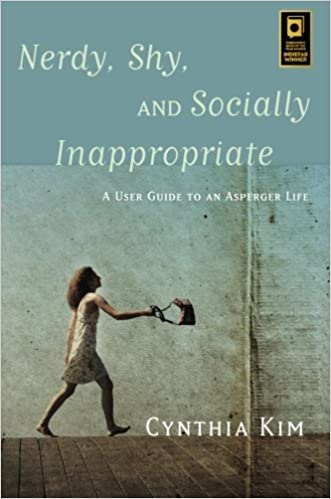

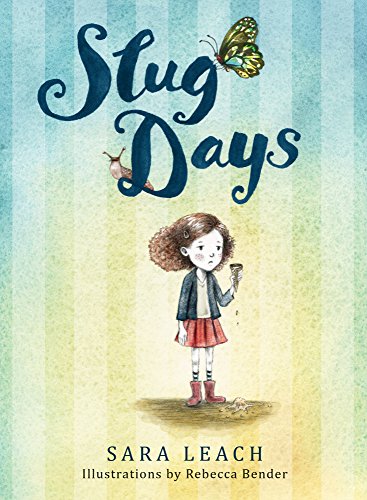
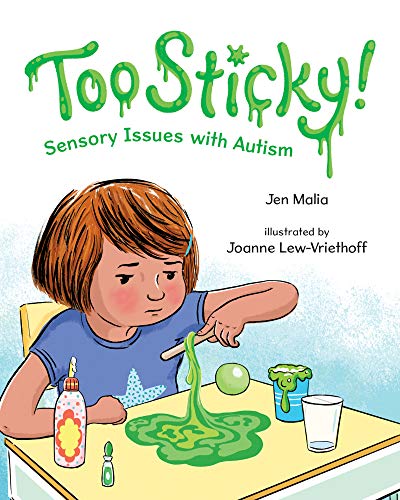
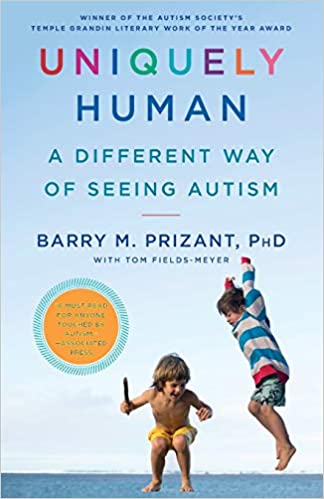




Thank you for this article!
You’re welcome!
Very cool to see this laid out. If one is empathetic intuitively reading reactions can allow for immediate adjustment, but most people do not walk that path. Teaching allows for learning – if there is some desire to learn.
I would generally agree with most of this.
But, I do think that the appropriate response varies depending on person and the degree to which they are affected The last two (#9, #10) in particular seem especially sensitive in that respect. While it can be detrimental to some, especially if taken to an extreme, it’s crucially important to develop, if possible, at least an intellectual understanding in those areas. Being left to your own devices and blissful ignorance won’t end well.
If a family member of friend who is neuro-typical says it’s fun to do X or that they enjoy Y and suggests you try it, they probably aren’t messing with you even if you really don’t find X/Y fun/enjoyable. They’re just trying to share something that is fun or enjoyable to them, and possibly many others, with you. If they don’t seem to understand, then you’re probably an anomalous data point in their experience of humans as a whole. It’s understandable to be really pissed if they keep pushing, even after having it explained, though.
With regard to the latter, I think that some degree of masking is necessary. It may well be draining and feel fake, but it’s essential to understand what kind of response the average person is expecting and how the way you behave will be perceived. And it’s critical to be prepared to project that outward at least some of the time if you can manage it. Expecting the world which is mostly one way to adapt itself to you is just setting yourself up for disappointment whereas learning to communicate that you really do care is important even if you save it for the people that matter most to you.
A great article! Very informative. I concurred with you on all the points as I have learnt them from my daughter and her schoolmates who are ND
Are you happy being racist? (“some Patel hotel owner”)
Thank you for pointing out that the last individual’s comment on this post contained a racial slur against Indian people. I’d never heard the word before and didn’t know its meaning when I approved his comment. I appreciate you taking the time to bring this to my attention. His comment has since been erased.
11. Telling on us. Well, ok, this one really isn’t very “nice.” Now, I can understand telling on someone for behavior that is unsafe, or could potentially land someone in serious trouble, but REALLY??!! Do you guys REALLY need to rat us out for doing things as minor as taking too long at the drinking fountain, or saying something that could be offensive?! WHY can’t neurotypicals apply the same criteria for ratting us out as they do for ratting a neurotypical person?! Now, I understand that the people who do this to us might think they are being helpful, but I know that I personally would find it more helpful if people would just come to me first, take me aside, and tell me CALMLY that what I have done has upset them or others.
They avoid having to have difficult conversations at all costs. They rat us out because they are cowards and conflict avoidant and they don’t want to be told to their face that perhaps their ‘insight’ is in fact just plain judgemental and rude or none of their business. I had a situation recently where I was publicly mocked for my mannerisms because apparently I had failed to take numerous hints that were contained in posts I simply did not read because they weren’t relevant to my interests. Neurotypicals think this is appropriate social behaviour when a person is in their midst who is not constantly monitoring the social milieu the way they do.
This was an excellent article, thank you so much! It clarified some things for me and assured me in others that I have managed to avoid some pitfalls in my parenting (my child was undiagnosed as a kid, it was only in late teens). I do feel terrible that lot of things I just accepted ’that’s the way they are, we are all a bit weird in our own ways’ and didn’t pursue diagnose earlier, it would most likely been helpful for them to have the diagnosis earlier (accepting was good tho! And I am very weird too.) But we are all now learning more about autism and how to enjoy and cope with life.
I especially liked the bit about gifts and trying to share fun experiences, that is something to work on for me – because I DO want to give gifts and share fun exeriences, I just need to find the right ways. Like, find something that is fun experience for them and see if I enjoy it instead of other way around.
Thank you again and also thanks for the book recs, I will be checking those out too.
I came across your article on “8 things autistic people do that you’re misreading as a neurotypical” and kept reading more. Everything is so spot on. I wish I had this information decades ago. I’m sure we all do. The amount of trauma from being misread, falsely accused, bullied, and physically abused greatly disrupted my life going forward. Gender identity issues came along with it. I used to try to be social, but I’ve become a hermit for the past 4-5 years. I spend that time alone doing a lot of reading, writing, and shadow work. Hopefully, I’ll emerge from that black shell renewed. Anyway, thank you for your words. I’ve been sharing them with some family members who, even to this day, still get it wrong.